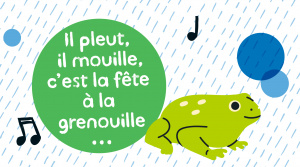Difference between revisions of "Language/French/Grammar/Impersonal-Verbs"
Jump to navigation
Jump to search
m (Quick edit) |
m (Quick edit) |
||
| Line 3: | Line 3: | ||
__TOC__ | __TOC__ | ||
==Personal and Impersonal Verbs== | ==Personal and Impersonal Verbs== | ||
<div | <div class="pg_page_title">Impersonal verbs</div> | ||
Most verbs are personal: they must be conjugated to different persons, such as: | Most verbs are personal: they must be conjugated to different persons, such as: | ||
* Example: "manger" (to eat): je mange (I eat), tu manges (you eat), etc. | * Example: "manger" (to eat): je mange (I eat), tu manges (you eat), etc. | ||
However, some verbs are used '''impersonaly''', meaning they only have one conjugation, the third person singular. | However, some verbs are used '''impersonaly''', meaning they only have one conjugation, the third person singular. | ||
| Line 31: | Line 30: | ||
<youtube>https://www.youtube.com/watch?v=VX7P-HKMfus</youtube> | <youtube>https://www.youtube.com/watch?v=VX7P-HKMfus</youtube> | ||
== | ==Other Lessons== | ||
* [[Language/French/Grammar/Common-Mistakes|Common Mistakes]] | * [[Language/French/Grammar/Common-Mistakes|Common Mistakes]] | ||
* [[Language/French/Grammar/Plurals-of-nouns-ending-in-eu,-au,-eau|Plurals of nouns ending in eu, au, eau]] | * [[Language/French/Grammar/Plurals-of-nouns-ending-in-eu,-au,-eau|Plurals of nouns ending in eu, au, eau]] | ||
| Line 47: | Line 46: | ||
* [[Language/French/Grammar/Polite-Form|Polite Form]] | * [[Language/French/Grammar/Polite-Form|Polite Form]] | ||
* [[Language/French/Grammar/Plural|Plural]] | * [[Language/French/Grammar/Plural|Plural]] | ||
<span links></span> | |||
Latest revision as of 14:01, 27 March 2023
Personal and Impersonal Verbs[edit | edit source]
Impersonal verbs
Most verbs are personal: they must be conjugated to different persons, such as:
- Example: "manger" (to eat): je mange (I eat), tu manges (you eat), etc.
However, some verbs are used impersonaly, meaning they only have one conjugation, the third person singular.
- Example: we can say "Il pleut". However, we cannot say "Je pleus".
- See also the impersonal form.
Video - French Impersonal Verbs Examples : Valoir, Falloir, Pleuvoir[edit | edit source]
Video - comptine pour enfants (nursery rhyme) : "Il pleut il mouille"[edit | edit source]
Children know how to use impersonal verbs like in this rhyme: "il pleut, il mouille, c'est la fête à la grenouille" (it's raining, it's wet, it's a frog party). 😄
We can use the traditional verb, “pleuvoir”, as well as the transitive verb, “mouiller”. The latter is used more colloquially, and it indicates greater intensity of rain.
Videos[edit | edit source]
French Impersonal Verbs in French : Valoir, Falloir, Pleuvoir - YouTube[edit | edit source]
French IMPERSONAL VERBS // French conjugation Course ...[edit | edit source]
Other Lessons[edit | edit source]
- Common Mistakes
- Plurals of nouns ending in eu, au, eau
- Gender of the noun indicated by its final letter
- How to Guess the Gender of French Nouns
- Omission of the article in participle + noun constructions linked by de
- Adverbs ending in —ément derived from adjectives ending in —e
- Omission of the article in set phrases and verbal constructions
- Collective nouns
- Changes in the stem form of some —er conjugation verbs
- Position of object pronouns with faire, laisser, envoyer or verbs of perception + infinitive
- Agreement of past participles with direct objects placed before in relative clauses
- Plural of Nouns
- Use of stressed pronouns for emphasis
- Polite Form
- Plural

